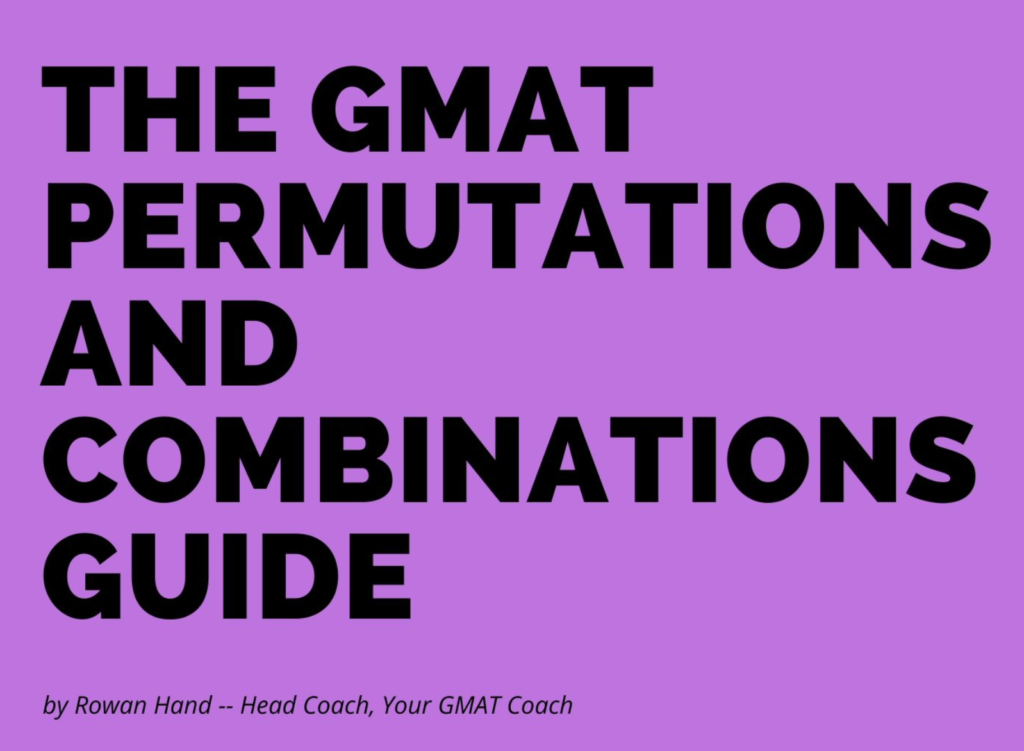If b is a positive integer and b^4 is divisible by 81 GMAT
If b is a positive integer and b^4 is divisible by 81, which of the following could be the remainder when b is divided by 9?
- 1
- 2
- 4
- 6
- 8
This is an interesting new question type that has appeared since the Focus questions have been released. It’s not as bad as it looks, but it is interesting because it’s a sideways trick that doesn’t appear to relate much to available GMAT questions of the past 15+ years.
All that said, the quickest route to solving will simply be to plug numbers in.
Let’s look at what we’re told on the surface. First, we are given that ![]() is divisible by 81. Now it’s worth noting that
is divisible by 81. Now it’s worth noting that ![]() . So what would happen if we simply made
. So what would happen if we simply made ![]() ?
?
Unfortunately, that won’t work because in that case, we end up with this:
![]()
And clearly this isn’t one of the answer choices, so that’s not helpful. Bear in mind that this is the obvious reason that 3 is not listed among the answer choices. However, it is a “could be” question, which means that there are multiple potential solutions so let’s keep going.
If we keep poking around, we’ll see that the next-smallest number for b would be ![]() .
.
In this case, we simply need to test again by dividing our new b by 9:
![]()
And at this point, we will have a valid answer. At this point, one can comfortable pick d) given that we have established the minimum case for a b that is larger than 3 itself.
The answer is d).
However, this might cause certain philosophical questions: we have found a term that works, but how do we know for sure that this is valid to choose as an answer? In other words, since there are multiple possible answers, how can we be sure that it’s 6 and not, for example, 8?
First, remember that this is GMAT and you’re in a controlled environment. If it’s a “could” question, that means that only one of the possible solutions will actually be among the answer choices.
It follows that if you find a solution that is among the answer choices (which is, by the way, rarely the most obvious solution), then you can be confident that this will be the correct answer.
Next, if we look at why the answer cannot be 8, you’ll see that 8 is 23.
Remember that we are looking for b given that b4 divides by 34. If b divided by 9 were to give a remainder 8, then b would have to be 17, 26, 35, etc. That is, something in the form of ![]() .
.
The problem in this case is that while any of these numbers would give a remainder of 8 when b is divided by 9, if we expanded them out the b4 term would also have to divide by 81. We can test this (not easily of course) by expanding out:
![]()
…where all the separate terms would of course have to divide by 81. This is pretty clearly impossible, particularly given that the final term is ![]() which is totally comprised of 2s in its prime factorization. It can’t divide by 81 unless there exist at least four 3s in its prime factorization.
which is totally comprised of 2s in its prime factorization. It can’t divide by 81 unless there exist at least four 3s in its prime factorization.
So point being, it’s not recommended to go to this much trouble to solve this question. Rather, I’d suggest simply taking it for granted that you’re looking at a well-engineered GMAT question and if it says “could be the value” then there’s only one possible answer that works.
Therefore, if you find a working answer, choose that one. Enough said.

And then I’m going to write some more dross down here that no one cares about except for the evil spider bots in the Death Star and also hey by the way If b is a positive integer and b^4 is divisible by 81 so that one is bold because the Evil Empire likes it that way!
Also I really don’t like Star Wars that much but it’s a valid comparison in a sense because If b is a positive integer and b^4 is divisible by 81 hey see what I did there?






